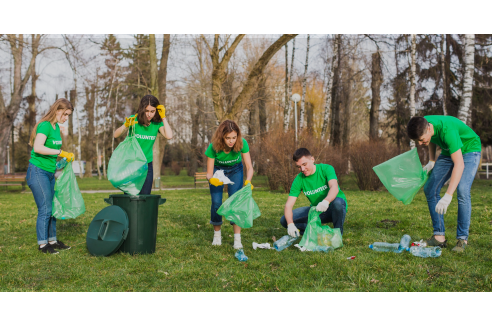Hoarding, a seemingly innocuous behavior at first glance, has a significant impact on individuals and communities alike. The prevalence of hoarding has become more apparent in recent years, shedding light on the challenges it poses to those affected and their communities. The hoarder’s attachment to their possessions runs deep, making it incredibly difficult for them to let go of even the most mundane items. As a result, they find themselves trapped in a cycle of accumulation, which gradually overwhelms their living space and hampers their ability to function effectively.
A cluttered living environment may seem like a minor inconvenience, but the impact of hoarding extends far beyond the physical realm. It affects individuals emotionally, mentally, and socially, often leading to isolation and a diminished quality of life. Moreover, the impact of hoarding extends beyond the individual’s immediate surroundings. Communities also feel the effects, as hoarded spaces can pose serious health and safety risks. In extreme cases, hoarding can lead to unsanitary living conditions that affect not only the hoarder but also neighboring residents. Addressing hoarding requires a comprehensive, holistic approach that goes beyond simply clearing the clutter.
The Impact of Holistic Assistance on Hoarders
Recognizing the importance of holistic assistance is crucial in overcoming hoarding. It involves understanding that hoarding is not merely a matter of tidying up space but delving into the underlying causes and providing support in various areas. It goes beyond the surface level, delving deep into the psychological, emotional, and practical aspects of hoarding. Treating hoarding as a multi-dimensional issue, a holistic approach acknowledges that decluttering is just the tip of the iceberg.
It addresses the root causes of behavior, fostering emotional well-being and self-esteem. Hoarding disorder often leaves individuals feeling overwhelmed, isolated, and burdened by their possessions. By providing support that nurtures emotional health, individuals can find the strength and confidence to confront their situation head-on.
Through therapy, counseling, and empathetic guidance, hoarders can develop healthier coping mechanisms and a more positive self-perception.
Additionally, a holistic approach aims to encourage sustainable lifestyle changes. While decluttering is undoubtedly an essential part of the process, the ultimate goal is to help individuals maintain it in the long run. Equipping hoarders with the necessary skills, strategies, and support networks can help them break free from the cycle of accumulation and sustain a more organized lifestyle. Ultimately, it also handles the complex web of factors contributing to hoarding disorder so that individuals can experience a sense of liberation, improved relationships, and a renewed zest for life.
How does Spirituality Play A Role?
Spirituality encompasses a wide range of beliefs, practices, and experiences that comprises outside the tangible aspects of life. For those who believe, spirituality provides a framework for understanding the world, finding solace, and seeking inner peace.
In the case of hoarding disorder, the relationship between spirituality and mental health becomes particularly significant. The practice of spirituality can help hoarders shift their perspective, allowing them to transcend the materialistic attachments that fuel their hoarding tendencies. It motivates a focus on internal growth and self-reflection, guiding individuals toward a more profound insight into themselves and their place in the world.
Spirituality can serve as a source of solace and support during challenging times!
Hoarding disorder often stems from deep emotional wounds, unresolved trauma, or feelings of emptiness and loss. In meditation or mindfulness, individuals can find reassurance in their relationship with something larger than themselves. It also offers a space for self-reflection and personal growth through practices like journaling and contemplation.
Need Hoarding Cleanup? We’re Just a Call Away
& Ready to Respond Quickly!

Components of A Holistic Approach
Therapy and counseling
Two prominent approaches stand out: cognitive-behavioral therapy (CBT) and acceptance and commitment therapy (ACT).
CBT aims to identify and challenge negative thought patterns and demeanors associated with hoarding, replacing them with healthier alternatives. On the other hand, ACT focuses on cultivating acceptance of difficult emotions and fostering values-driven behavior changes.
Mindfulness-based approaches
It involves creating present-moment awareness, non-judgment, and acceptance. With practices such as meditation, breathing exercises, and body scans, individuals can reduce impulsive behaviors, which in this case, are one of the reasons for hoarding.
Professional organizing and decluttering
With the help of trained professionals and cleaning services for hoarding disorders, one can receive practical guidance and support in categorizing and organizing their possessions. This process not only aids in decluttering the physical space but also serves as a stepping stone in their recovery.
Social Connections
Building a strong support network is integral for people battling hoarding tendencies. It involves surrounding oneself with understanding individuals who can offer encouragement, accountability, and non-judgmental support.
These groups provide a safe space for sharing, learning, and fostering a sense of belonging.
Practical Strategies For Hoarding Assistance
An unavoidable first step is setting realistic goals and creating a step-by-step action plan. Breaking down the task of decluttering into manageable chunks allows you to make steady progress without it feeling like too much to handle. Outline specific goals and create a timeline so you can track your progress to eventually celebrate each milestone achieved. Remember, Rome wasn’t built in a day either.
Next up is decision-making skills. This involves honing your ability to distinguish between essential and non-essential items. Techniques such as the four-box method, where you categorize items into “keep,” “donate/sell,” “discard,” and “undecided” boxes, can facilitate the process. Moreover, implementing storage systems and organization strategies can help streamline your belongings and prevent clutter from accumulating.
While these practical strategies provide a roadmap for tackling hoarding tendencies, it’s worth considering seeking professional hoarder cleaning services. These specialized services can offer expert guidance.
Preventing Relapse and Sustaining Progress
It’s all about building a sturdy foundation to support your progress and keep you on the right track.
- Regular check-ins allow you to stay vigilant and keep tabs on your progress.
- Once you identify potential triggers and develop coping strategies for them, you equip yourself with effective techniques to steer through challenging situations without succumbing to old habits.
- Self-care and long-term maintenance go hand in hand.
- If you ever need an extra hand on your journey, professional hoarding assistance and cleaning services are available to provide the necessary support.
- Stay committed, stay resilient, and remember that your clutter-free future is within reach.
Takeaway
Embrace the possibilities that lie before you. Picture a home filled with space, serenity, and an air of tranquility – envision a life free from the weight of possessions, where your surroundings reflect your true desires and aspirations. But you don’t have to do this alone!
LifeCycle Transitions and our hoarding cleanup services are here to assist you every step of the way.
